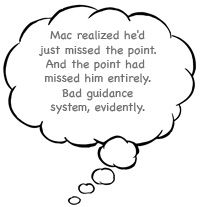 L’Oser
L’Oser
Jean-Paul Bavard rappes avec Beck
Grammy Award-winning Superstar Singer/Songwriter Beck recently consented to an exclusive interview with the internationally-acclaimed Literature/Music/Fashion Critic Jean-Paul Bavard. They discussed such topics as Beck’s latest album, the certified-Platinum Odelay, his current tour, irony, Carl Jung, popular culture, and TV sitcoms.
transcribed by Daniel Davis
illustration by Ans
Jean-Paul Bavard: Critics around the world have anointed you as the savior Genius of contemporary Pop music, due to your brilliant Hip-Hop/Trance/Old School/ Alternative/Pop album, Oh, To Lay. Yet you have thus far refused to kill yourself as a tragic result of heroin addiction, nor have you been gunned down in a hail of gang-related bullets as an undeniable example of street credibilitie. As Sartre wrote so eloquently in L’Entrance, his treatise on the modern dilemma of existential reality, “Music is the ineffectual solution to the impossible question posed by the difficulty of existence.” Therefore, you must have concrete plans for a new album.
Beck: Yeah. I haven’t started working on it yet, but it should be…
Jean-Paul Bavard: Of course, it’s always dangerous to take such a quote out of context. Paradoxically, context is everything in your body of work, as its patently obvious homage to Check Your Head, circa 1991, is clearly an indictment of the lack of originality, creativity and block-rockin’ beats evident in popular culture throughout le monde today. But this begs the question of what you mean to imply about communication and semiotics, as refracted through the obfuscated, diffuse prism of White Boy Hip-Hop in the late 1990s, as the millennium draws near. Not to speak for such a Genius as yourself, but surely you must literally bristle at the comments of such naysayers as Legendary Music Critic Greil Marcus, who in his essay, “Dumb Stuff’s Not As Dumb As You Think, Really It’s Not,” in the current issue of Molehill magazine, refers to you as “the little guy with the cheesy sideburns.” Obviously, all Geniuses, from Mozart to Renny Harlin, have had to deal with negativity from outsiders who were not ready to accept their work on its own merits. I sense your frustration with this in your song “Lick Me Good,” from your classic unreleased live bootleg underground compilation CD, I Was Beck’s Sound Guy, But He Never Paid Me, which strangely remains unavailable in most record stores. Frustration has been the inspiration of many great works of art, do you not think?
Beck: Well, yeah. But I think…
Jean-Paul Bavard: Which is not to imply, nor infer, that there are not many other possible inspirations for artists to choose from. Antonin Dvorak’s Allegro Molto in his Symphony Number 5 in F Major was inspired by his annoyance with his physician’s cold hands. As the brilliant Oscar Wilde once cleverly observed, “Who hasn’t been there?” But there are countless examples of artistic inspiration from the mundane, such as the work of Jackson Pollock, of course. Or even the abandoned fingerpaintings that Carl Jung spent six weeks on!
(Jean-Paul laughs uproariously for seven seconds)
Jean-Paul Bavard: I am surprised by your stoicism, monsieur Beck. Surely, you’ve been influenced by the works of Jung?
Beck: Neil? Yeah, I just was on the H.O.R.D.E. tour with him for six months.
(Jean-Paul laughs uproariously for four seconds)
Jean-Paul Bavard: Ah, the subtlety of your humor. It is such a pity that it escapes the less observant and educated listener. This is always the way, is it not? Still, there is nothing subtle about your use of technology in your pre-millennial music of the 1990s. You are quite unabashed in your cybercomputer sampling of post-Reagan American Cultural Signifier Iconography. This approach has been criticized in the past as being “Neo-McLuhan,” “ersatz nihilism,” and “lame.” What is your response?
Beck: What?
Jean-Paul Bavard: A sensitive subject, no doubt. Let us change to a different subjet, then. If your music were a cigar, which cigar would it be? And which Supermodel would be smoking it on the cover of Details?
Beck: A cigar?
Jean-Paul Bavard: Not to bog down in unnecessary minutiae. Rather than a cigar, perhaps you would prefer the metaphor of TV sitcoms to describe your oeuvre. Would you say you, as an artiste, are more Step By Step, or My Two Dads?
Beck: Um, well… probably more like…
Jean-Paul Bavard: Ah, Hogan’s Heroes. Of course. Oh, the irony. Needless to say, irony is quite gigantic in your work, and all important art of the last decade. One is inclined to query where the irony stops and where the sincerity begins, if in fact you care to draw lines between the two at all. Of course, it is not your job, as a Genius artist, to draw such distinctions. Still, contemporary rock superstars from Uriah Heep to Sting have grappled with such topics in overlong art rock concept albums for quatre decades now. Then again, there always seems to be une Foghat pour every Jethro Tull, so to speak. You yourself sometimes seem to endeavor to bridge this gap. Why?
Beck: Huh? Jethro Tull?
Jean-Paul Bavard: True, sincerity and sarcasm are one and the same, frequently, despite what dictionaries may say. A great artist, much like a brilliant critic, must focus on the art, not on arbitrary rules of form, structure, meaning, or syntax. As le soft drink advertisemente says, rules are made to be broken. Do I look fat to you?
Beck: What?
Jean-Paul Bavard: I’m sure you’re familiar with my essay, published recently in Cyberwire magazine, that maintains that art is merely a social construct, like mores, morals, or Tom Cruise. This theory was more evident in your earlier work, with such groundbreaking groups as the Yardbirds. What caused you to ultimately reject this concept, along with Rod Stewart and the rest of your band?
Beck: Rod Stewart? I’ve never worked with him. Are you talking about Jeff Beck?
Jean-Paul Bavard: Clearly, I have touched upon another sensitive subject. Ca ne fais rien, we shall move ever onward. In the lyrics to your first hit single, “Loseur,” your tribute to the 1993 Los Angeles Clippers, you implore the listener to quote-unquote “kill” you – the metaphorical implications of such a concept are undeniable, yet have been explored many times before by previous Geniuses from Bach to Truffaut to Tim Conway, in his groundbreaking “Dorf on Golf” videos. What else can be said about this that has not already been said?
Beck: The really interesting thing about that – this is something I’ve never talked about in public before – is that I wasn’t actually…
Jean-Paul Bavard: Speaking of Bach, your names are very similar. Bach-Beck; Beck-Bach. It is fun to say this – Beck-Bach. Say it with me now, won’t you?
Beck: I’m not going to say…
Jean-Paul Bavard: Bach-Beck, Beck-Bach. I am quite sure that this was an intentional statement by you, in choosing as your cultural identity a name with such obvious ramifications – your own signifying announcement to the world; your own personal “Rock Me, Amadeus,” perhaps? Bach-Beck.
Beck: Are you purposely fucking with my head?
Jean-Paul Bavard: Ah, a prototypically sly self-reference to your song “Fuckin’ With My Head,” featured on your famous landmark album Yellow Gold. Fear not; while most Music/Media Critics may have not picked up on your subtle wordplay, I have of course understood your deeper meaning. Thanking me is unnecessary; it is merely my job as a vastly influential Essayist and Theorist to understand such hidden deeper meanings in contemporary disposable popular culture. Beck-Bach-Beck-Bach-Beck!
Beck: All right, that’s it. I’m out of here.
Jean-Paul Bavard: Beck-Bach-Beck-Bach-Bach! Apparently, Beck – who is quite clearly the greatest Musical Genius in the history of the universe – has been called away on important business, no doubt in keeping with his duties as Spokesperson for his Generation, and has had to take his leave. We thank him for his appearance, and hope that he has perhaps learned important concepts from this discussion that will no doubt improve his forthcoming work, which he has so typically avoided all discussion of. I am quite certain that our frank exchange of ideas has inspired him to reexamine his Genius music, to reassess many artistic concepts, and the world awaits the no doubt much-improved result.



